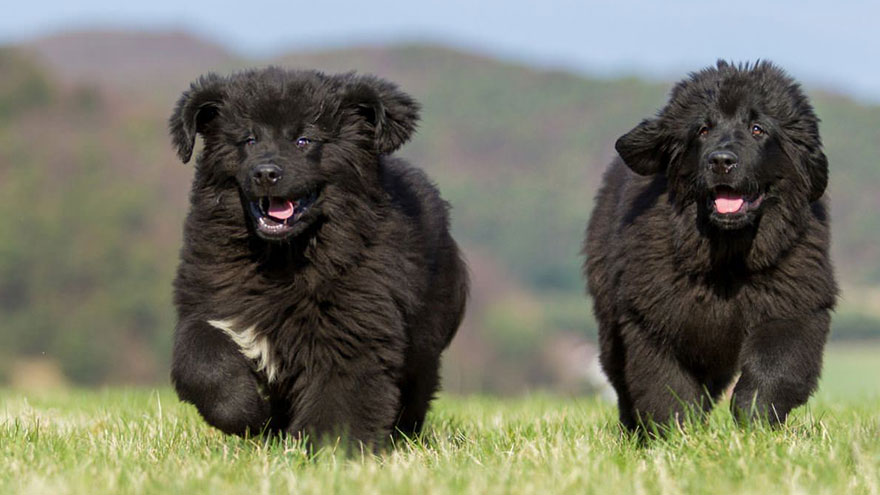Newfoundland Health Guide
A large and sturdy breed such as the Newfoundland would normally be expected to be healthy and relatively free from disease or serious medical conditions. As with many purebred dogs, there are a few areas to consider.
The first of these health conditions to look for is hip dysplasia, a hereditary disease that can cause pain and limit the movement of many larger dogs.
Health Problems in the Newfoundland
Hip dysplasia, also called degenerative joint disease, is related to various degrees of arthritis. Some of the specific problems of this condition are cartilage damage, inflammation, and pain from damaged nerve endings. Level of exercise and intake of calories are just two of the outside factors that may also contribute to the problem.
The Orthopedic Foundation for Animals (OFA) has developed a radiographic test for this disease. You should ask your breeder about this condition and the availability of the test when you are looking for a puppy. Any dog you bring home should be OFA-certified as free from indications of this disease. In addition, it would be wise to ask about the health condition of both parents of the puppy you are considering.
The Newfoundland is also prone to a hereditary heart disease known as sub-aortic stenosis. This congenital heart problem has been traced in some bloodlines. Therefore, this condition is something that you should ask about when buying and raising a young Newfoundland. Sub-aortic stenosis is generally caused by varying degrees of obstruction that can cause problems with blood circulation.

You may also want to learn about a kidney/bladder disorder called cystinuria. In addition, we recommend asking your breeder and your veterinarian about eye problems with purebred dogs. Progressive retinal atrophy is an inherited eye disease that, in the most severe cases, can cause blindness. The condition is not detectable in a puppy, so you should discuss this condition with the breeder and ask about the health of the parents of your puppy.
When it comes to feeding the Newfoundland, you might think that there would never be enough food to satisfy such a large, strong animal. Most owners have found that their Newfoundland will eat about as much as a less massive dog such as the retriever or German Shepherd. As they develop and grow to their adult size, puppies of this breed may need a bit more food than some other dogs but an adult Newfoundland will not require as much food as you might think.
Experienced owners and veterinarians recommend that new owners pay particular attention to the eating and exercise habits of a Newfoundland, to make sure that the pet does not get fat as it reaches adult size. Dogs of this breed can be quite content to lay around the house and move deliberately when getting up to go to another location.
If the owner will make sure that the dog gets some regular exercise outdoors, most problems with weight can be avoided.
If possible, a Newfoundland should have a diet that contains some of the nutrients found in its native environment or at least a diet that is not completely, foreign to the dog. Some purebred dogs have developed allergies to the grains in less-expensive commercial foods, so it might be good to avoid lower-priced foods.
We recommend trying to get the right amounts of minerals, protein, and vitamins from fresh foods, lean meats and some vegetables.
In fact, some scientists insist that dogs should get raw foods because their stomachs are designed to digest this type of material.
A little bit of planning and a few questions at the beginning can go a long way toward giving your Newfoundland a long, healthy life.
Read More About
- Newfoundland Breed Information
- Newfoundland : 10 Most Common Questions
- Newfoundland Training Guide
- Owning a Newfoundland : Breeder Recommendations

